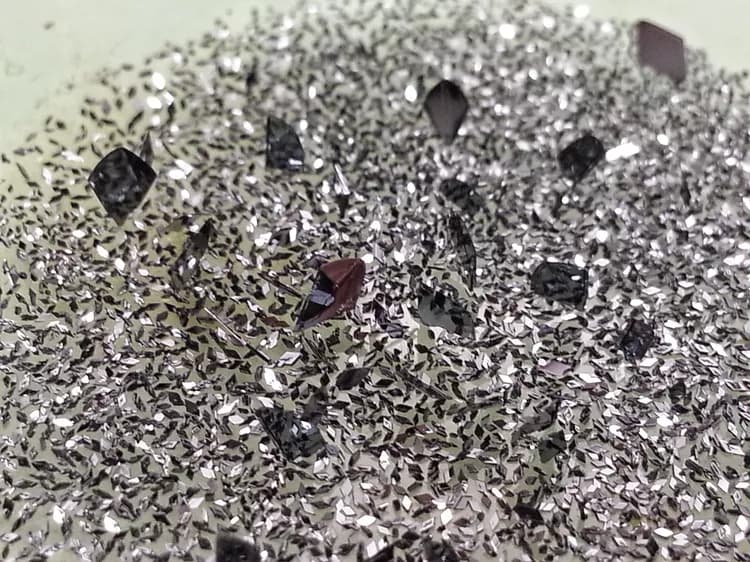Iodine (I) is a very important mineral that is required by the body in trace amounts. Over 70% of iodine is stored in the thyroid gland, located in the neck. Iodine is required for the synthesis and production of thyroid hormone, which is very vital for the functioning of cells, for various body metabolic processes, for the prevention of excess fat storage by optimum utilization of energy, and for removal of toxins from the body.
As per American Thyroid Association, iodine deficiency can lead to severe consequences such as physical and mental growth abnormalities in children born to iodine deficient pregnant women. It can also cause swelling in the neck, called goiter, and hypothyroidism. Iodine deficient disorders are commonly seen in women.
Generally, iodine deficiency is observed endemically in certain population groups, where iodine-poor or iodine-depleted soils and low access to seafood are observed. Iodine occurs naturally in seawater and in the soils. Previously, iodine deficiency was prevalent in many parts of the world, which was then remedied through massive salt iodization programs that many countries adopted. Per National Institutes of Health, Office of Dietary Supplements factsheet, currently over 70 countries have salt iodization programs and almost 70% of homes use iodized salt for cooking purposes.
The American Food and Nutrition Board recommends a daily intake of 150 micrograms of iodine for any individual over 14 years of age. Lactating women and women who are pregnant require foods rich in iodine. Among the list of 100 of World's Healthiest Foods drawn up by the George Mateljan Foundation (a not-for-profit foundation), about 30% contain iodine.
Foods high in iodine include the following:
- Seaweeds (especially the brown species) like kelp, wakame, kombu, and nori, which are seawater-dwelling marine plants (algae). However, there is a great variation in iodine content between different species of seaweed
- Scallops: Species of saltwater clams and mollusks
- Seafood such as shrimp and fish like cod, haddock, and bass
- Dairy foods, such as cow’s milk, yogurt, and milk products, like cheese, and even ice cream
Iodized salt is commonly used for cooking and most of our daily intake of iodine may be met in this manner, by avoiding a low iodine diet and opting for iodine rich foods. As per US Food and Drug Administration, a quarter teaspoon of iodine-fortified table salt contains 70 micrograms of iodine and meets about 50% of our daily requirement. Also, fruits and vegetables grown in iodine-rich soils do contain iodine; though, the amount of iodine content is variable.
References:
Caldwell KL, Miller GA, Wang RY, et al. Iodine status of the U.S. population, National Health and Nutrition Examination Survey 2003-2004. Thyroid 2008;18:1207-14.
Caldwell KL, Pan Y, Mortensen ME, et al. Iodine status in pregnant women in the National Children's Study and in U.S. Women (15-44 years), National Health and Nutrition Examination Survey 2005-2010. Thyroid 2013;23:927-37
Cao Y, Blount BC, Valentin-Blasini L, et al. Goitrogenic anions, thyroid-stimulating hormone, and thyroid hormone in infants. Environ Health Perspect 2010;118:1332-7.
Institute of Medicine. Food and Nutrition Board. Dietary Reference Intakes for Vitamin A, Vitamin K, Arsenic, Boron, Chromium, Copper, Iodine,Iron, Manganese, Molybdenum, Nickel, Silicon, Vanadium, and Zinc. National Academy Press, Washington, DC, 2001.
Helpful Peer-Reviewed Medical Articles:
Hetzel, B. (1983). Iodine deficiency disorders (IDD) and their eradication. The Lancet, 322(8359), 1126-1129.
Delange, F. (1994). The disorders induced by iodine deficiency. Thyroid, 4(1), 107-128.
Zimmermann, M. B. (2009). Iodine deficiency in pregnancy and the effects of maternal iodine supplementation on the offspring: a review. The American journal of clinical nutrition, 89(2), 668S-672S.
Related Articles
Test Your Knowledge
Asked by users
Related Centers
Related Specialties
Related Physicians
Related Procedures
Related Resources
Join DoveHubs
and connect with fellow professionals


0 Comments
Please log in to post a comment.